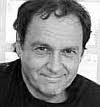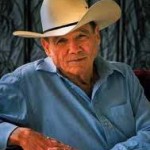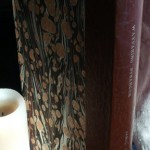James Lee Burke, The Tin Roof Blowdown
£68.00
When it comes to literate and violent motifs in a major detective series James Lee Burke has few peers. For more than two decades the Dave Robicheaux detective series has blossomed and each of the recent novels have been lauded by the critics. Burke is a major force in American crime. Tin Roof received ecstatic reviews. This edition contains an appreciation by British critic and crime writer Phil Rickman.
Out of Stock

 Following early attempts at literary fiction and a thriller issued by a university press James Lee Burke found a niche with the Dave Robicheaux detective novel Neon Rain (1987). It was this breakthrough that quickly earned him an Edgar for best mystery with Black Cherry Blues, his third novel in the series. This book, like the others in the series is about a deep feeling for the South, human dignity and redemption. What Burke brings to the genre is an emotional engagement; listen to this: “. . . I had found the edge. The place where you unstrap all your fastenings to the earth, to what you are what you have been, where you flame out on the edge of the spheres, and the sun and moon become eclipsed and the world below is as dead and remote and without interest as if it were glazed with ice. ”
Following early attempts at literary fiction and a thriller issued by a university press James Lee Burke found a niche with the Dave Robicheaux detective novel Neon Rain (1987). It was this breakthrough that quickly earned him an Edgar for best mystery with Black Cherry Blues, his third novel in the series. This book, like the others in the series is about a deep feeling for the South, human dignity and redemption. What Burke brings to the genre is an emotional engagement; listen to this: “. . . I had found the edge. The place where you unstrap all your fastenings to the earth, to what you are what you have been, where you flame out on the edge of the spheres, and the sun and moon become eclipsed and the world below is as dead and remote and without interest as if it were glazed with ice. ”
Plotline from the James Lee Burke site: The story begins with the shooting of two would-be looters in New Orleans during Hurricane Katrina, and then follows a motley group of characters – from street thugs to a big-time mob boss, from a junkie priest to a sadistic psychopath – as their stories converge on a cache of stolen diamonds, while the storm turns the Big Easy into a lawless wasteland of apocalyptic proportions. The nightmarish landscape created by Katrina seems the perfect setting for Burke’s almost Biblical visions of good and evil – it is as if he had to wait for this disaster to find the occasion to match his emotionally supercharged prose. You can feel the undercurrents of rage and pain beneath the narrative, making this not only his most personal and deeply felt book for some time, but quite possibly his best novel to date. This is not just a superb crime novel, it is potentially The fictional chronicle of a disaster whose human dimensions America is still struggling to process. The Tin Roof Blowdown received ecstatic reviews on both sides of the ocean.
James Lee Burke has become the foremost American crime writer of his time. Although an entertainer Burke’s Robicheaux series (now extending to eighteen dense novels) marks out an outstanding achievement in creating a much followed flawed character with real depth and in extending the crime genre into areas of wider social concern. British critic and crime writer Phil Rickman wrote the appreciation. The Scorpion Press edition comprised 80 numbered and signed copies and a further 16 lettered for presentation purposes.

 James Lee Burke, Wayfaring Stranger
James Lee Burke, Wayfaring Stranger
 Ruth Rendell, A Sight for Sore Eyes
Ruth Rendell, A Sight for Sore Eyes

Rating by Peter Gutteridge, The Guardian on May 29, 2012 :
Peter Gutteridge, The Guardian
“James Lee Burke’s writing has always had religious overtones, with its focus on good and evil, forgiveness and revenge and the occasional intrusion of the supernatural. Perhaps it’s no surprise, then, that The Tin Roof Blowdown, about a natural disaster of almost biblical proportions – the devastation wrought to southern Louisiana by hurricane Katrina – is probably his finest novel.
It’s the 16th book to feature Cajun detective Dave Robicheaux and it starts with the destruction of New Orleans and the lawless chaos that followed. Robicheaux, who has a problem keeping a handle on his anger at the best of times, is outraged by the venality, criminality and incompetence that he must wade through as he searches the flooded city for two looters and a junkie priest.
The looters, who are black men, are shot in a wealthy suburb because they make the mistake of robbing the home of a major mobster. One of them is still alive and Robicheaux must find him before the vengeful mobster does. At the same time, he’s trying to work out what has happened to the drug-addicted priest, who disappeared in the Ninth Ward while trying to rescue his congregation. There are also diamonds to be tracked down and a sadistic psychopath on the loose.
Robicheaux’s search takes him through a world where there is no refuge for the helpless or the innocent and where predators terrorise the flooded streets. Burke shows the plight of the poor with moving immediacy. Corpses bob in the filthy water or are skewered on the branches of trees. In this apocalyptic setting, good and evil collide and Robicheaux sees both the worst and the best in people.
Given Burke’s passion for Louisiana, this novel could have gone horribly wrong and turned into a rant. What shows his greatness as a writer and his mastery of the genre is that, although his anger at what happened is evident, he doesn’t allow it to overwhelm the story. On the whole, his approach is measured (apart from bits of Bush- and Fox News-bashing, which sit oddly) and he merges his almost journalistic account of the aftermath of Katrina seamlessly with a powerful crime plot. There is a touch of didacticism and this is certainly an angry novel, but it is also thoughtful, sensitive and, as so often with Burke, elegiac. His prose is as evocative as always although, faced with real horrors, less lyrical and lush. Thinking in biblical terms again, The Tin Roof Blowdown is both a lamentation and a testament. It certainly joins Spike Lee’s documentary about New Orleans as one of the most moving but clear-sighted accounts of this terrible event.
Over the past two or three Robicheaux novels, I felt the series was becoming predictable but here Burke is writing at the top of his form. It’s quite an achievement to make the 16th novel in a series a personal best, but it’s more than that – it stands comparison with the best of Southern fiction. I have no idea how Burke can possibly follow it, but I can’t wait to see him try.”
Rating by Jules Brenner on May 29, 2012 :
About.com Contemporary Literature, review 5 stars by Jules Brenner
“If there’s anything sheriff detective Dave Robicheaux values strongly besides bringing criminals to justice they are his relationships, which are his treasures. From his new wife Molly, to his adopted daughter Alafair and all the creatures in residence in his home, to bounty hunter and partner in arms Clete Purcell, to his boss Helen Soileau who calls him “Pops,” “Bwana” and “Streak” according to her mood — these people are in his heart and mind as he pursues depraved criminals amidst the roiling chaos of an historic blast of nature – Hurricane Katrina.
In its aftermath, crime is as rampant as the breakdown of law and order allows, providing a river of plunder for opportunists of every description — those who, according to Dave, bring to mind “simian ancestry in the human gene pool.” And, with the NOPD virtually wiped out, it falls to Helen’s department in New Iberia parish to furnish some primary law enforcement in the city of New Orleans. Which brings Dave’s attention to a pernicious strain of human debasement.
The case starts with Natalia Ramos, an ex-prostitute shacking up with addict Father Jude LeBlanc whom she can’t find and is desperately looking for. But the agreement of witness accounts indicates that her stiff-collared lover was accosted by four black men as he was breaking a hole in the roof of his church in the Lower 9th ward as an escape hatch when the rising river threatened the lives of the people who sought refuge with him. Compounding tragedy, however, the attack caused his drowning, along with his parishioners. As for the four black men, they were only after the priest’s motorboat.
Brothers Eddy and Bertrand Melancon, Andre Rochon and his young nephew Kevin comprise a team whose specialty in life is house robbery, with a minor in bail jumping. Now seeing the storm “as a gift from God,” and having no need to “crowd into the stink at the Superdome,” they happen upon Thelma Baylor, a young white girl, and rape and torture her. Afterward, “…sharing drinks from a silver flask and happy as hogs rolling in shit” they troll the uptown area of the city for some more payback against the white man. It is at this point in their predatory journey that they wind up in the mansion of one Sidney Kovick, a local mobster, and discover a hiding place with a .38 snub, a ziploc bag of blood diamonds, and five bundles of hundred dollar bills.
What they don’t know is that they’ve been spotted by the residents of the only mansion on the street with lights burning, where Otis Baylor, wife Melanie and daughter Thelma reside — yes, Thelma Baylor, the girl they raped. Their night of plunder will come to an end when, upon the quartet’s return to the Kovick house for what they might have missed, a single bullet bursts Eddy’s throat and tears Kevin’s skull apart.
Who pulled that trigger is one of the primary mysteries for Dave to solve, but it’s not the only problem on the overworked detective’s plate. Trumping everything is the appearance of Ronald Bledsoe, an independent opportunist whom Dave recognizes as a man of sociopathic ammorality and great cruelty whose presence multiplies the tension fourfold. As Dave describes him, he’s a man whose “head and face look like the end of a dildo.” Bledsoe now takes pre-eminence in Dave’s playbook of worries because, from the way the man talks and behaves, Dave knows he’s no mere lowlife. Dave recognizes this smooth operator as a mortal danger, and that he’s after Alafair, who has profoundly and publically subjected Bledsoe to the full weight of her contempt. (This character may be based to some degree on Burke’s real daughter Alafair, the author of Dead Connection)
From the residents of New Orleans who lived through the storm devastation to the millions who read about it from a distance with a mixture of awe and sympathy, the picture they have of the city is incomplete without a reading of Burke’s horror-steeped journey through “New Orlean’s long night of the soul.” He inserts his fictional characters into the mother of all storms and it reads like a deep wound felt at first hand. Burke, himself a resident of New Iberia, describes a milieu of mayhem in which crime and revenge is as mental as it is physical, and where the central character has the capacity to weigh guilt against remorse like few other dedicated guardians of the law are disposed to do.
Burke’s literary power is in the meticulous creation of exemplars of mankind across the spectrum of good and evil. His overriding need for justice is urgent; his rage at the bestial and the unconcerned is equally palpable; the hope he maintains for a positive outcome is redemptive; and his irony is penetrating. The processes Burke uses amount to the most emotion-soaked, three-dimensional literature in the field, poetic and tough.
Rating by Mark Timlin in The Indepenent on May 29, 2012 :
Mark Timlin in The Independent
“It’s been a long time since a crime novel made me cry. It’s been a long time since a crime novel made every hair on my body stand on end. The Tin Roof Blowdown did both. Burke’s last book, Pegasus Descending, ended as Hurricanes Katrina and Rita advanced on New Orleans, and I looked forward to him writing about what happened next.
At the time of the disaster, sitting comfortably thousands of miles away, anyone like me who had ever visited New Orleans, or even those who hadn’t, couldn’t avoid being shocked as the story unfolded. But not all the TV reports I saw, or the acres of newsprint I read about the disaster brought home the horror of what happened like this book does. The city was ravaged twice by the forces of nature, and the aftermath seemed like the end of days for so many people and their property. The events changed forever the city that its inhabitants happily called The Big Easy, Sin City or The Great Whore of Babylon, the spiritual home of jazz and rock ‘*’ roll, immortalised on scratchy old records by Fats Domino, Freddy Cannon, Gary “US” Bonds, Doctor John and literally hundreds more. Read it and weep like I did.
Burke’s serial character, police officer Dave Robicheaux, is sent into New Orleans from his home turf of New Iberia to try and maintain a semblance of law and order, while helping his old friend Clete Purcel round up a pair of bail jumpers, as cops desert their posts, and looters and shooters take over the streets. But the plot is not what makes this a superb novel, or indeed the style of writing that Burke has honed down to a razor’s edge. In my opinion The Tin Roof Blowdown is more than a crime novel; more than a literary novel even. It is a work of profound historical value and importance that should, no, must be read by anyone interested in what can happen when a holocaust breaks loose and civilisation breaks down. To say I enjoyed this book is an understatement, but it was enjoyment in a guilty way, as I read about what happened over that short period of time when the world changed for hundreds of thousands of people, never, it seems, to return to what it was. There were moments when I wanted to put the book down, it was so painful to continue. But I couldn’t. Nor, I dare say, will anyone else.”